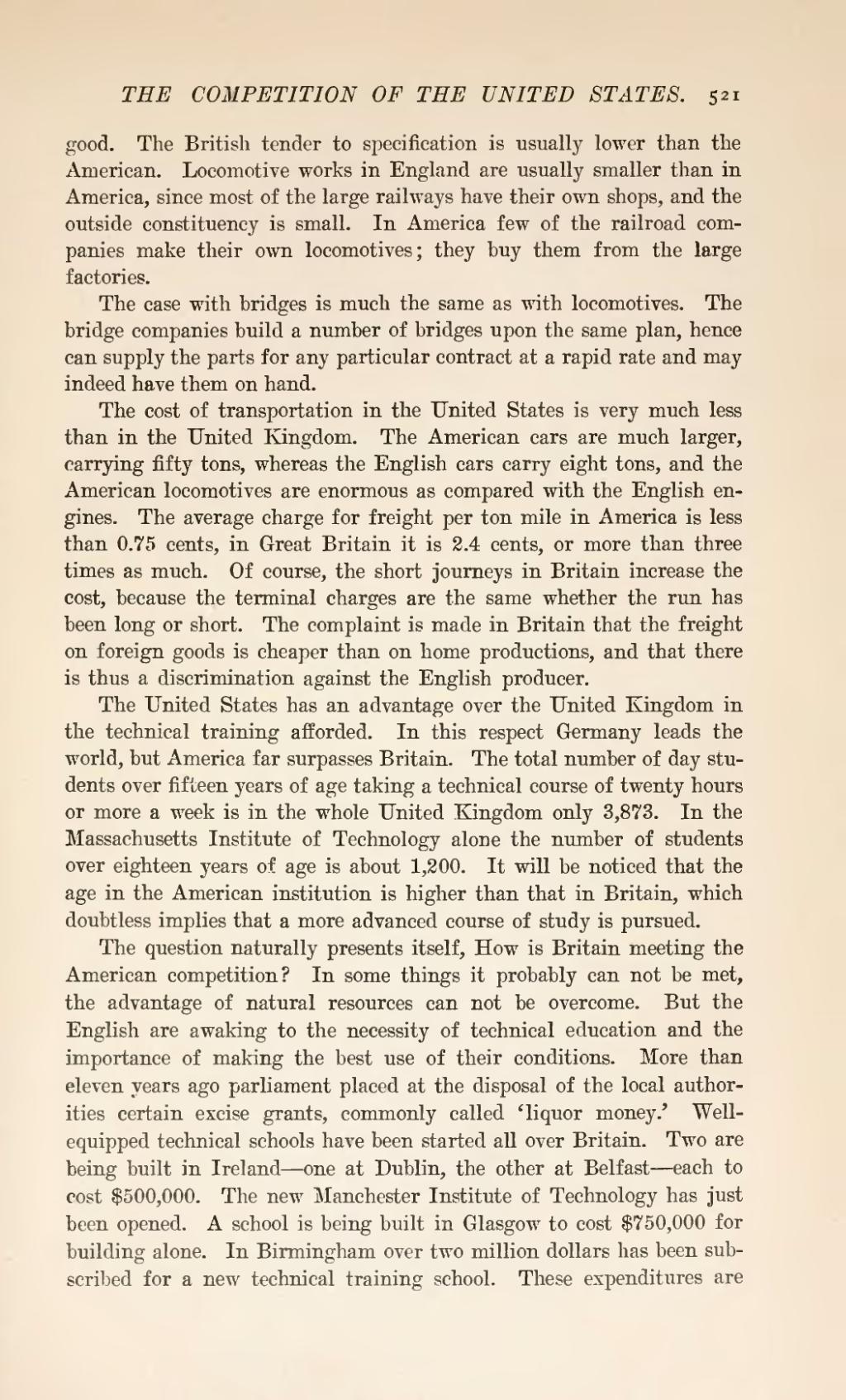good. The British tender to specification is usually lower than the American. Locomotive works in England are usually smaller than in America, since most of the large railways have their own shops, and the outside constituency is small. In America few of the railroad companies make their own locomotives; they buy them from the large factories.
The case with bridges is much the same as with locomotives. The bridge companies build a number of bridges upon the same plan, hence can supply the parts for any particular contract at a rapid rate and may indeed have them on hand.
The cost of transportation in the United States is very much less than in the United Kingdom. The American cars are much larger, carrying fifty tons, whereas the English cars carry eight tons, and the American locomotives are enormous as compared with the English engines. The average charge for freight per ton mile in America is less than 0.75 cents, in Great Britain it is 2.4 cents, or more than three times as much. Of course, the short journeys in Britain increase the cost, because the terminal charges are the same whether the run has been long or short. The complaint is made in Britain that the freight on foreign goods is cheaper than on home productions, and that there is thus a discrimination against the English producer.
The United States has an advantage over the United Kingdom in the technical training afforded. In this respect Germany leads the world, but America far surpasses Britain. The total number of day students over fifteen years of age taking a technical course of twenty hours or more a week is in the whole United Kingdom only 3,873. In the Massachusetts Institute of Technology alone the number of students over eighteen years of age is about 1,200. It will be noticed that the age in the American institution is higher than that in Britain, which doubtless implies that a more advanced course of study is pursued.
The question naturally presents itself, How is Britain meeting the American competition? In some things it probably can not be met, the advantage of natural resources can not be overcome. But the English are awaking to the necessity of technical education and the importance of making the best use of their conditions. More than eleven years ago parliament placed at the disposal of the local authorities certain excise grants, commonly called 'liquor money' Well-equipped technical schools have been started all over Britain. Two are being built in Ireland—one at Dublin, the other at Belfast—each to cost $500,000. The new Manchester Institute of Technology has just been opened. A school is being built in Glasgow to cost $750,000 for building alone. In Birmingham over two million dollars has been subscribed for a new technical training school. These expenditures are
